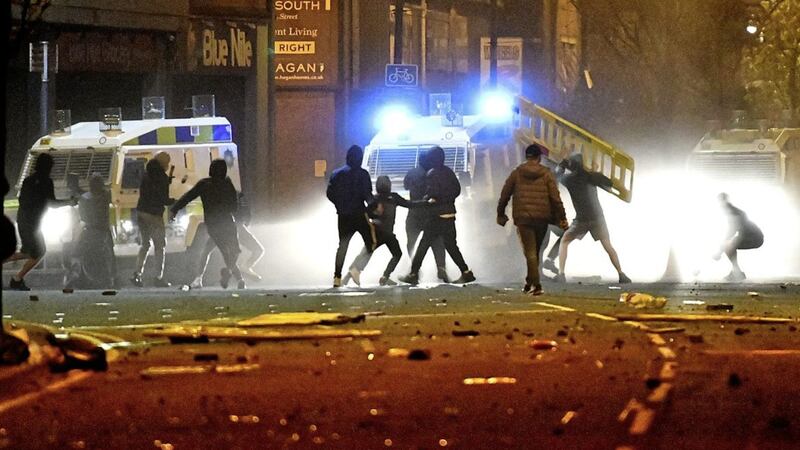SIMON Coveney has said there is pressure to find solutions to problems around the Northern Ireland Protocol before the loyalist marching season.
Speaking after a meeting with European Commission vice-president Maros Sefcovic yesterday, the Irish foreign affairs minister said the "last thing we want to see is… moving into a marching season this summer, without Covid-19 restrictions keeping people in their homes, without many of these issues resolved politically".
"So, I think there is a pressure that we find a way to come up with solutions by some point in June, and I think the commission is very much aware of that and I'm sure the British government is too."
He added that his role is "to work as part of the EU, but also to reach out to colleagues in London as well, and of course in Belfast, to find a sensible, pragmatic way forward here that everyone can live with".
More loyalist protests are planned in opposition to the protocol, which imposed customs check on goods travelling between Britain and Northern Ireland to avoid the need for a hard border in Ireland.
Anger over the Irish Sea border and a decision not to prosecute any Sinn Féin members over breaches of Covid regulations at the funeral of Bobby Storey spilled into violence in several loyalist areas last month.
A meeting of the EU-UK joint committee on the protocol could take place in the first week of June.
Mr Coveney told RTÉ that both sides would have to work together "technically, legally and politically" to reach some kind of veterinary agreement that would "reduce the need for the majority of inspections at ports in Northern Ireland".
The British government is understood to be resisting strict alignment with EU food safety and animal health rules, but European officials are concerned about setting a precedent for other trade relationships.
Meanwhile, a parliamentary committee in Dublin has heard that it has been "extremely challenging" for businesses trying to adjust to the new customs checks.
Director-General of Customs Gerry Harrahill also told the Seanad Committee on the Withdrawal of the UK from the EU that firms who have been closed during the pandemic may still need to adapt.
In the first 15 weeks of this year the Department of Agriculture carried out 13,000 checks at Dublin Port and 670 at Rosslare, compared to about 3,500 in Dublin in the whole of last year.
The Health Service Executive also had to train an additional 110 environmental health officers and other staff and undertook checks on almost 14,000 consignments at Dublin and Rosslare in the first quarter of this year, compared to 891 in the same period last year.








